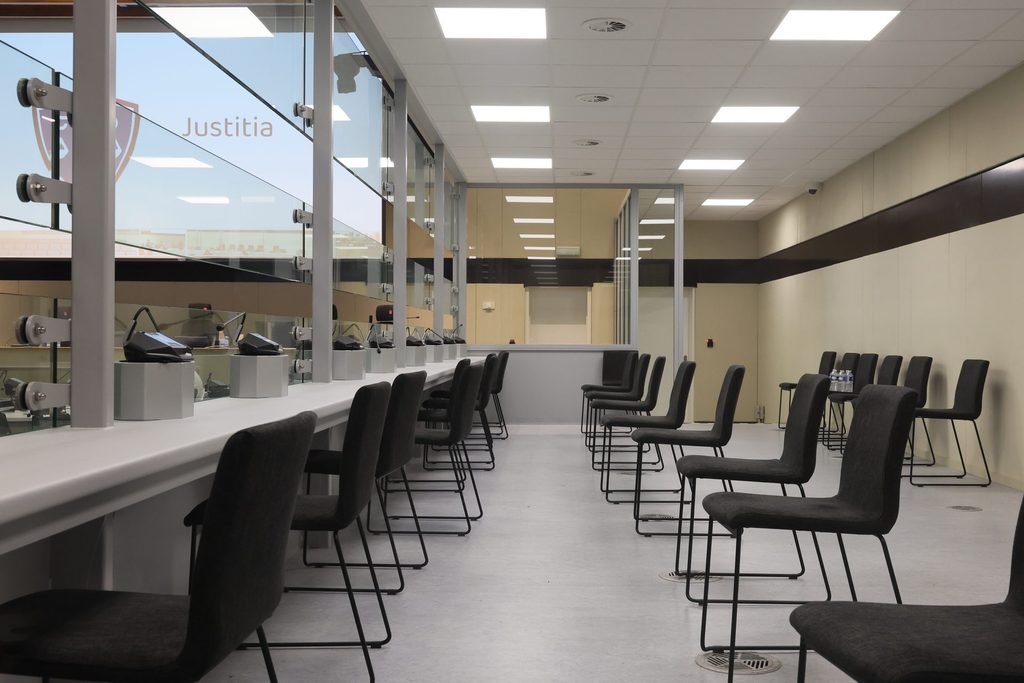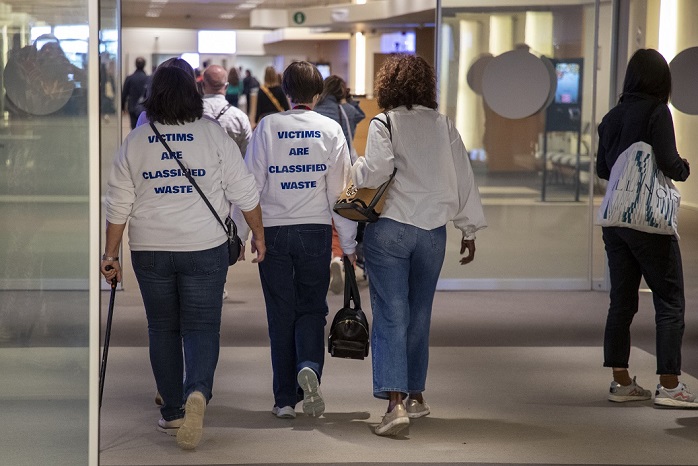As the verdicts for the ten men on trial for their role in the March 2016 terror attacks in Brussels were announced late into Tuesday evening, Belgium's "trial of the century" has come to an end.
Six of the accused were declared guilty of terrorist murder, eight of membership of a terrorist organisation and two were acquitted. The 12 members of the jury reached that verdict after 19 days of deliberations in total isolation and a legal procedure that dragged on for over seven months.
Praise and respect for the meticulous work of the people's jury has poured out from victims and relatives, and even some lawyers of the accused. "Their effort was immense. They followed the trial very attentively all those months and then spent just under three weeks scrutinising that file day after day and actually delivering a very nuanced and reasoned verdict," said Sanne De Clerck, lawyer for some of the victims and relatives.
After some initial confusion when the answers to the questions of guilt were read out too quickly for many, the reasoning behind the jury's decisions made up for a lot, De Clerck said. She stated that the detail of the verdict made clear to victims that the jury had carried out their function with due diligence and spoke of a "general consensus among the civil parties" which indicates that a "good judgment" has been delivered.
A lesson in justice
Additionally, the death toll of the attacks has been revised from 32 to 35 to include those who succumbed to their injuries and trauma much later such as Shanti De Corte, who was euthanised for mental suffering after witnessing the Zaventem attack. "I am glad they are recognising psychological suffering in this way. That is important. The family hopes this will also be a recognition for other victims this way."
Related News
- How Belgium moved on from the bombings
- Brussels terror trials mark 'important page in judicial history', says Federal Prosecutor
- Brussels terror attacks trial: Eight found guilty of terror activities, six of murder, two acquitted
- How the bombs changed Brussels, and how the city is still coming to terms with them
Pierre-Yves Desaive, a survivor of the Zaventem bombing, told VRT that he is satisfied with the verdict. "Despite the difficulties, justice has been served in a serene way. I think the decisions on guilt reflect well what we heard during the trial."
He also said he was not surprised that Ibrahim Farisi was one of the two who were acquitted, as this had long been sought by the prosecution. "For [his brother] Smail Farisi it was a bit of a surprise, but also interesting. I want to stress that we do not want to put people behind bars for our pleasure."
Smail Farisi had already been in pre-trial detention. "His acquittal reflects the question of what benefit a jail term would have for him," Desaive said. "His involvement was shown, all the justifications are very detailed. I think this is a very good lesson in justice."

Credit: Belga
In September, the 12 members of the jury will have to return to the Justitia building once more to decide on the sentencing of those declared guilty. Then, their civil service is over.
"To be honest: I never expected that those people would stay on board for so long. That is to the credit of the president (Laurence Massart) and the justice staff," lawyer Kris Luyckx, who defended some of the victims in the trial, told De Tijd. "I only hope that those people now get proper psychological counselling. Even for the lawyers, it has been very taxing."
The shadow of trauma
Federal Justice Minister Vincent Van Quickenborne confirmed that the members of the jury will indeed receive psychological guidance. This was prevented during the trial to avoid the jury being influenced in any way. A team of psychologists will now step in.

Victims and relatives of the terror attacks leave the court after the verdict. Credit: Belga/Nicolas Maeterlinck
"There were many doubts beforehand about whether citizens would be able to handle this but the jury has not been an obstacle at all. On the contrary: these committed people played a very active role," said Van Quickenborne, adding that their conduct "commands the respect of us all."
Despite the initial doubts about the feasibility for the people's jury of this lengthy and complex trial and despite the procedural difficulties at the beginning, the trial went smoothly. The Justice Minister put this in no small part down to the jury: "The citizens of the people's jury were a driving force. The jury delivered justice."
Federal Prosecutor Frédéric Van Leeuw called the trial "an important page in the judicial history of our country" and thanked everyone who participated. "I wish that those who suffered so much with what happened continue to find the support and affection they need to rebuild their lives."
He underlined the "colossal task" that the members of the jury took on and stressed that everyone should recognise "the magnitude of their sacrifice".
